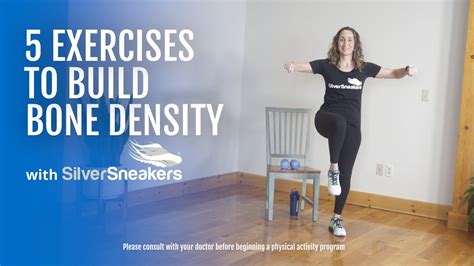How to Build Bone Density: A Comprehensive Guide
Building and maintaining strong bones is crucial for overall health and well-being, especially as we age. Osteoporosis, a disease characterized by low bone density, can lead to fractures and significant health problems. Fortunately, there are many steps you can take to improve your bone density and reduce your risk. This comprehensive guide will explore effective strategies to strengthen your bones naturally.
Understanding Bone Density
Before diving into how to improve bone density, it's important to understand what it is. Bone density refers to the amount of bone mineral density (BMD) in a specific area of the bone. Higher BMD indicates stronger, denser bones, reducing the risk of fractures. Bone density naturally peaks in early adulthood and gradually declines with age, particularly in women after menopause.
Factors Affecting Bone Density
Several factors influence bone density throughout life. These include:
- Genetics: Family history of osteoporosis significantly increases your risk.
- Hormonal Changes: Menopause in women and low testosterone in men contribute to bone loss.
- Nutrition: A diet lacking in essential nutrients, particularly calcium and vitamin D, weakens bones.
- Lifestyle: Lack of physical activity and smoking are detrimental to bone health.
- Medical Conditions: Certain medical conditions and medications can affect bone density.
Strategies to Build Bone Density
Building stronger bones is a holistic process involving lifestyle changes and potentially medical interventions. Here are key strategies:
1. Diet Rich in Calcium and Vitamin D
Calcium is the fundamental building block of bones. Excellent dietary sources include:
- Dairy products (milk, yogurt, cheese)
- Leafy green vegetables (kale, spinach)
- Fortified foods (plant-based milks, cereals)
Vitamin D is essential for calcium absorption. Good sources are:
- Sunlight: Exposure to sunlight helps your body produce Vitamin D.
- Fatty fish: Salmon, tuna, and mackerel are rich in Vitamin D.
- Fortified foods: Many dairy products and cereals are fortified with Vitamin D.
Consider supplementing with calcium and vitamin D if you're concerned about your intake. Always consult your doctor before starting any supplements.
2. Incorporate Weight-Bearing Exercises
Weight-bearing exercises, those that work against gravity, are crucial for bone health. These exercises stimulate bone growth and increase bone density. Examples include:
- Walking: A simple yet effective exercise.
- Running: Provides a greater impact on bones.
- Hiking: Combines cardiovascular exercise with weight-bearing activity.
- Dancing: A fun and engaging way to improve bone density.
- Weight training: Strength training directly stimulates bone growth.
3. Maintain a Healthy Lifestyle
Beyond diet and exercise, adopting a healthy lifestyle is critical for optimal bone density:
- Avoid smoking: Smoking significantly increases bone loss risk.
- Limit alcohol consumption: Excessive alcohol intake can negatively impact bone health.
- Manage stress: Chronic stress can affect bone density.
- Get enough sleep: Adequate sleep is vital for overall health, including bone health.
4. Medical Interventions
In some cases, medical intervention might be necessary to improve bone density. This may include:
- Medication: Bisphosphonates and other medications can help slow bone loss and increase bone density.
- Hormone Replacement Therapy (HRT): May be considered for postmenopausal women to manage bone loss.
Monitoring Bone Density
Regular monitoring of bone density is important, especially as you age. Bone density scans (DEXA scans) can accurately measure bone mineral density and help assess your risk of osteoporosis. Consult your doctor about the frequency of DEXA scans based on your individual risk factors.
Conclusion
Building and maintaining strong bones is a lifelong commitment. By adopting a healthy lifestyle that includes a balanced diet, regular weight-bearing exercise, and mindful lifestyle choices, you can significantly improve your bone density and reduce your risk of osteoporosis. Remember to consult your doctor or a registered dietitian for personalized advice and guidance.
